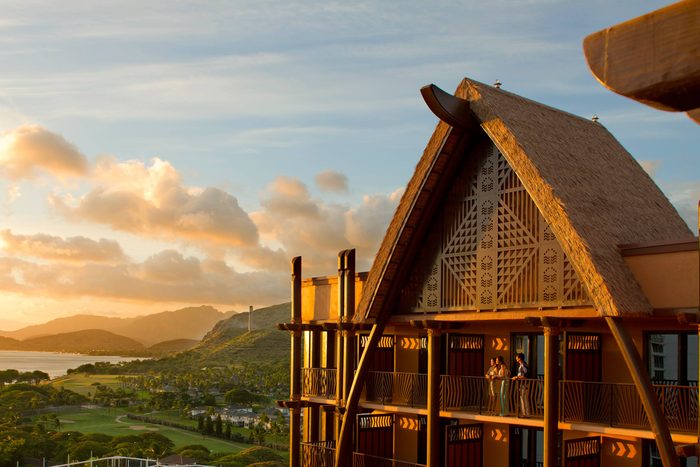
Aloha
It’s easy to feel Zen in Hawaii, with soothing ukulele music and tropical Mai Tais on white sand beaches. But on a recent trip to Aulani, a Disney Resort and Spa on Oahu, it was the Hawaiian phrases themselves, and the journey into their deeper meanings, that melted my tension away. “When you get really into Hawaiian, it changes your whole worldview,” says Manako Tanaka, Aulani Resort’s Ambassador 2017, who is getting a master’s degree in Hawaiian language. A perfect example is aloha, the first word you hear from the friendly Aulani Resort staff. Yes, it’s a basic greeting, but it also means love. When you say aloha to a stranger, it’s as if you’re anticipating that there will be love—or at least a warm bond—between you to look forward to. Imagine if, instead of grunting in your general direction, everyone you met smiled and said (in essence), “Hey, let’s be pals!”
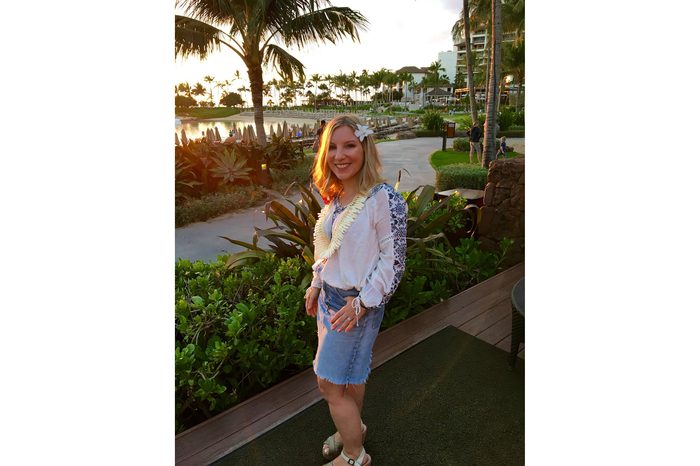
Lei
Yes, it’s an iconic flower necklace you so often see in images of Hawaii, but according to Tanaka, a lei can be anything that surrounds you—even a child with his arms around you or a mural on the wall. “It’s the security of being surrounded by something,” says Tanaka, who was born and raised on Oahu. “Instead of you hugging someone constantly, you can always be holding them symbolically by giving them a lei. It’s become an extension of an emotion.” Since the exquisite aromatic handmade lei I received would have wilted on my nine-hour flight back to the East Coast, I bought gem necklaces in the gift shop as leis for my daughters, because we should all feel that kind of familial love and security wherever life takes us.
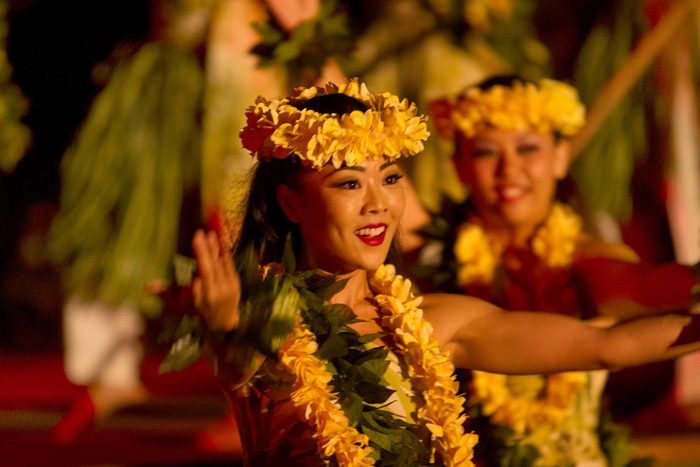
Ohana
Technically, ohana means family, but the term’s roots in nature—the word “oha” comes from the kalo (taro) plant—reminds us that we are all part of something much larger than ourselves. According to Tanaka, the legend goes that Mother Earth and Father Sky came together at the top of a mountain. Then came clouds and rain, where all life comes from, and it led to the first kalo plant and its younger brother, which was said to be the first Hawaiian (it’s a folktale—go with it). “The little shoots of the kalo plant are called ‘oha, and ‘na’ makes it a noun, so ‘ohana‘ is the budding of the kalo plant—a metaphor for family,” Tanaka explains. “We take that to mean that when you care for your family, you also care for the environment, because the environment is part of your extended family.” When I take in the plentiful koi fish and oversized candlenut trees, the term ohana reminds me that I’m among family, and I breathe a little more freely.
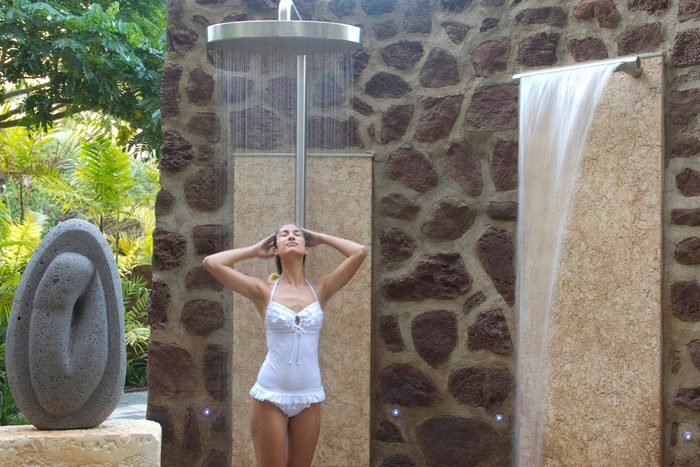
Pono
This word is carved into the smooth rock I chose at random on my way into the Aulani Resort spa, Laniwai. The direct translation is balance, and it couldn’t be a more fitting wish for a mom who works full time. But while we tend to think of balance as a pleasant 50-50 split between work and personal life, in Hawaiian, Pono is a super-loaded cultural word. “It’s the right thing, the good thing,” Tanaka explains. “A good leader would be ‘pono.’ It’s having integrity. It’s letting your conscience be your guide.” I may have left the “Pono” rock in the serene wishing pool at the spa (after an incredible oxygen facial, I might add), but I’m taking to heart the message that creating balance in life isn’t just for health—it’s what’s right. Here are more important words you should know before you travel.
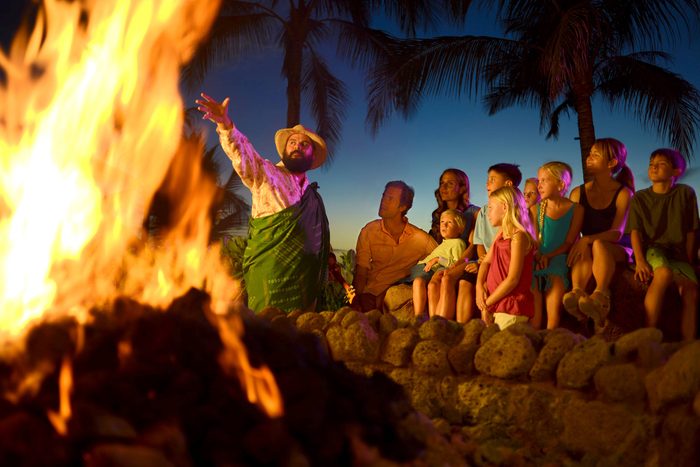
Mo‘olelo
One of the highlights of my stay at Aulani Resort was a fireside storytelling session by the ocean. With a booming voice and a tiny ukulele, Uncle, a charismatic storyteller told the tale of a mean shark who breaks the three most important rules—care for each other, always tell the truth, and don’t eat people—and ends up paying the price (he dries out on the beach and is eaten by a stray dog). The story is funny and heartwarming (especially because the shark is then reanimated when the dog goes for a swim), but it also shares time-honored values. As Tanaka explains, “mo‘olelo” comes from “mo‘o,” which means succession, like genealogy, and “ōlelo” means speaking or speech. “What you gain from that is an understanding that there are things to be learned from stories that are passed down,” he says. “We celebrate stories, whether from our own lives or ancient ones. They all have lessons and that’s the thing we try to embrace here.” I pledge to repeat more stories I’ve learned and listen closely for new ones, to continue the narrative thread of the generations—and because you’re never too old for a good bedtime story.
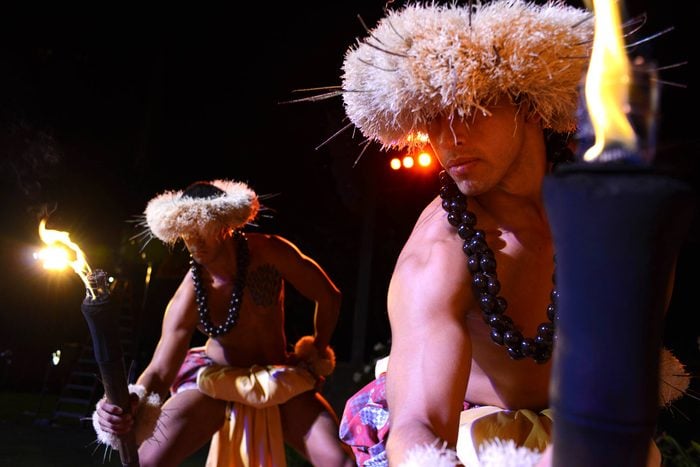
Lū‘au (with Hula)
You’ve already got a picture of a lū‘au in your mind—torches at dusk, a pig roasting in an underground oven, swaying hula dancers, and leis all around. But lū‘au actually means a Hawaiian feast, and in Hawaii, such a gathering is a big deal, according to Tanaka, and always with plentiful amounts of food. Hawaiian hula is an integral part of these social gatherings, and besides being entertaining (it’s not every day that you see burly loin-clothed men singing and waving firey batons), every hula tells a story. “It could be any kind of message—from declaring your love to complaining about politics,” he says. “It’s a very Hawaiian concept: learning the stories and knowledge of the past to move toward the future.” But it’s the social gathering part that resonates with me most. I’m reminded (again) that we weren’t meant to spend our evenings in the silos of our TV rooms, but rather, eating, laughing, and shmoozing with friends—one of the most powerful de-stressors science has ever encountered. Check out more of the best island vacations you can take without leaving the country.
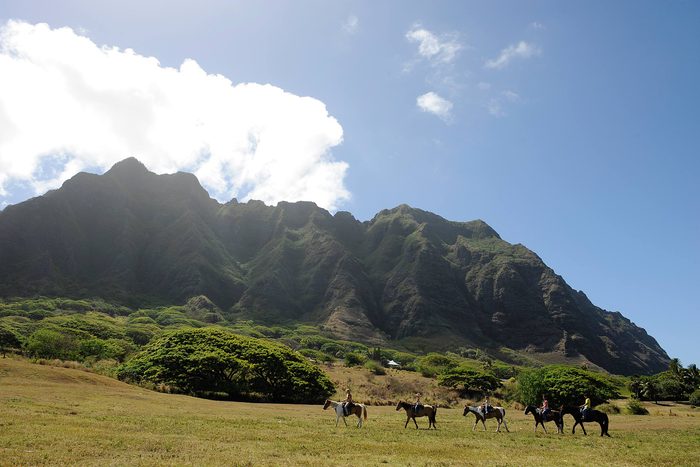
Uka
It means upland, like our nearly vertical hike up PU‘U MĀ‘ELI‘ELI that rewarded a small group of us with a breathtaking panorama of ocean dotted with small islands (including the one where Gilligan’s Island was filmed). But of course when it comes to Hawaiian phrases, a mountain is not just a steep hill, but also something that’s difficult to achieve. “Anything worthwhile—like the freshest water or the rarest plants—requires a climb, a journey,” Tanaka says. “In song, when praising someone, we say, ‘oh, my dear friend who lives in the clouds and on the mountain,’ to raise that person up figuratively, because ‘uka’ is the idea that value takes effort.” The concept gives me a healthier perspective on exercise, which I know I need more of in my life. Yes, it’s an uphill climb—uka—but it will be worthwhile. (And frankly, it’s pono, no?) Check out these 20 reasons Maui is the best Hawaiian island.
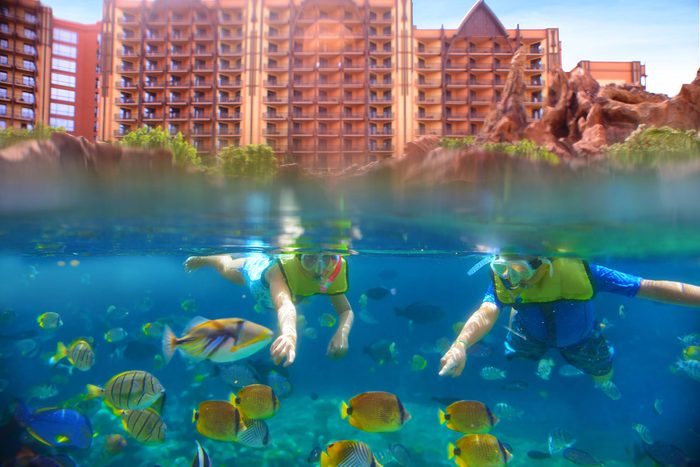
Wai
It means water, and at Aulani Resort, there’s water everywhere: in infinity pools, at the spa’s Kula Wai outdoor hydrotherapy garden, in kiddie pools, along the lazy river, in hot tubs, in an impressive koi pond, in a snorkel lagoon, and of course in the beautiful clear ocean. “In Hawaii, we have such a huge appreciation of water that we double the word to mean wealth—waiwai,” Tanaka explains, pronouncing the word like “vie-vie.” While an obvious takeaway would be to gain a renewed appreciation for natural resources, clean water in particular—it’s also a reminder that wealth doesn’t have to mean money. “It shifts your perspective from valuing expensive possessions to valuing the basic resources of life—fresh water, food, sunlight, family,” Tanaka says. Now when I covet the season’s “it” handbag that I could never afford in a million years, I think back to Hawaiian phrases: I am waiwai in the things that really matter.
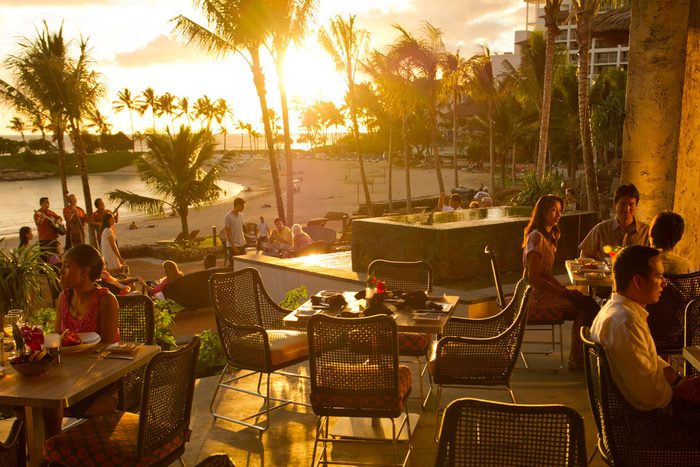
Mahalo
I learned quickly at Aulani that mahalo means “thank you,” but even as I say it to the waiters and bell hops, fitness trainers, masseuses, and manicurists, I don’t learn until later that the gratitude is actually mutual. “When saying mahalo, you’re not directing it at someone, you’re acknowledging that there’s mahalo between the two of you,” Tanaka explains. “As someone who studies Hawaiian, I feel this essence of mahalo all around us.” In fact, when someone says, mahalo, the traditional response is not an American “you’re welcome”—like I know I did you a favor and it’s no biggie—but rather, “I agree,” a confirmation that we have this mutual appreciation. “It’s a point of view that makes you acknowledge all the levels of the interaction,” Tanaka says. “Everything is an exchange in some way because we are all connected.” Mahalo! Once you’ve memorized those Hawaiian phrases, make sure you know these 11 things to know before booking a Hawaii vacation.